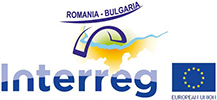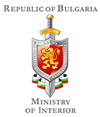About JEROME
Capabilities and interoperability for joint RO-BG cross-border first responder intervention to chemical-biological-radiological-nuclear-high yield explosive emergencies
Priority axis no. 3: A safe region
Specific objective 3.1: To improve joint risk management in the cross-border area
Project summary
The project upholds achievement of integrated, regional management of chemical-biological-radiological-nuclear-high yield explosives emergencies (CBRNe) by supporting Police authorities from Romania and Bulgaria in their effort to step-up cross-border cooperation between their special intervention units, as provided by European Council Decision 2008/617/JHA.
In this-line the project’s strategic objective is to set up, in the Romania-Bulgaria cross-border area, a fully interoperable, rapid reaction system to CBRNe emergencies, capable to provide/ accept services to/from first-responder units from both sides of the border.
With financing of 5, 999,095 €, the project will equip the specialized Police’s structures that are first-responders in an event implying high yield explosives with chemical-biological-radiological-nuclear components, with a total of 8 mobile intervention units, provided with complex technique that enable collection of essential data needed to characterize a CBRNe situation in terms of event type, amplitude and responsibility, while gaining control of situation and securing of the area. Adequate and effective response to CBRNe emergencies is further supported by provision of identical means for communications and data transfer to emergency management authorities.
The project also supports inception of an independent forensic laboratory, by endowment of a national research institute with dedicated equipment for the analysis of evidence collected by operational units and subsequent yield of data for the assessment and mitigation of CBRNe long term effects.
Common territorial challenges
Hazardous chemical, biological and radioactive materials (haz-mat) are present in the Romania-Bulgaria cross-border area from transport, technological processes or as wastes of industrial facilities and also from possible criminal actions resulting from the geo-political context.
Haz-mat emergencies are a major concern for authorities given their trans-national character and effects on the environment, population and economy. Determining at a very early stage the emergency nature is essential in planning a cost-effective intervention and recovery. Police forces are among the first to arrive at the scene of an emergency. Thus, from 2015 in both Romania and Bulgaria, special Units of the police forces are integrated in the national emergency systems, with specific duties as first-responders in case of CBRN events. The legal responsibilities of the police units extend from immediate life-saving actions and securing of the area, to gathering of information to characterize the type of emergency and collecting of samples.
The project will provide these means and also initiate the establishment of RENFLAB, a regional environmental forensic laboratory to act as certifying analytical support body for the region. The EC Decision 2008/617/JHA provides the frame for Romania and Bulgaria to establish interoperable rapid CBRNe reaction units which can operate at regional scale, addressing the entire cross-border area as a single unit, moving without restriction across national borders.


